How I got a literary agent - An interview with author Adrienne Schwartz
firstwriter.com – Saturday August 27, 2005

Adrienne Schwartz recently acquired an agent using firstwriter.com's database of literary agencies. We asked her about her writing, and how she found success.
fw:Congratulations on securing an agent to represent your book, Adrienne. What is your book called, and what is it about?
AS: The title is The Wizard's Box and it is a modern fairy tale for 10-year-olds (or thereabouts). It is about the adventures of Iggle, a bright, inquisitive girl, who lives on a wine farm in the Western Cape Province of South Africa. One afternoon in the vineyard, Iggle digs up a veneficus armarium, a wizard's poison box, to give its Latin name. She cannot resist a peek inside, even though she knows it may be risky, and she is not mistaken. Instantly she plunges into a Wonderland-like adventure where she meets some zany characters and journeys through the enchanted landscape to the Wizard's Tower. If she succeeds in finding the Tower, she must, according to tradition, outsmart the wizard, Cuppinsorcerer. Only then can she have her one wish come true.
fw:Where do you get your inspiration from?
AS: All my inspiration to write comes from J. R.R. Tolkien, but the inspiration for this story is directly from Alice in Wonderland.
fw:How did you go about writing it, and how long did it take?
AS: I would say in total three months, but it was interspersed with other books I was writing at the time, so from first date to polished final script, over the period of a year. Usually I begin with a story idea and just get it down, quickly as I can. Very rough, no chapter outlines, not much characterisation and no settings. Very often this conversation is just to get the ideas flowing and I rarely come back to look at the file ever again. I'm very fluid, so I muse on the conversation for a while, maybe take a few walks, think about, do I like it? Visualising the main character is important to me. I begin to work up small things about the character that have nothing to do with the story but inject a certain reality, perhaps an annoying cough or a particular speech pattern. This is my way of getting acquainted with the character. If I like the story or the character, then I get going with the first chapter and get a feel for things. I do a lot of rewriting or redrawing if you like, at this point, very much like sketching an outline and then trying out various colours and brushstrokes inside the lines. Things begin to take form, often unexpectedly. I rarely know exactly where I am going, although I have a fair idea of where I want to end up, and hardly ever write outlines as they tend to constrain me.
fw:It sounds like writing is something you've done a lot of. What writing have you done before, and has any of it been published?
AS: I have been dabbling on and off for a long time, since the 1970s, with short stories and romances. I have had both short stories and one full-length romance published.
About five years back I decided to get really serious and not just dabble. I wanted to write books that could – even briefly – transport a reader. For me, books (and reading) have always been the "open sesame" of the mind and I wanted to be part of that magic. I wanted to be a storyteller and hopefully use words to move readers in some way.
fw:What did you do to "get serious"? Did you start trying to find a literary agent straight away?
AS: No, I finished a full-length young adult book (my first) in December and began submitting to publishers in January. Not The Wizard's Box, but another manuscript. Turned out to be a frustrating exercise, especially from South Africa, where postal services are expensive and unreliable. Just trying to find a Post Office that sold International Reply Coupons was tedious and difficult. Out of 27 submissions only 4 were actually received, as far as I know. It was like tossing the manuscript into a big black hole. Was it falling into human hands or was this just a void? Impossible to evaluate. I realised that I needed an agent, but how to go about it? It was then I found firstwriter.com.
fw:Had you tried any other methods before you found firstwriter.com?
AS: I had an old edition of Writer's Market but it meant I still needed to send queries through regular mail so that put me pretty much on the same footing as when I submitted to publishing houses. In addition, I was limited to those agents who could afford to be in the Writer's Market. It all seemed so silly when email simplifies what is otherwise a cumbersome process. I entered the 21st century and foundfirstwriter.com in early February. For a day I was sceptical and thought "this can't be real. So much information, so reasonable, I am going to be hit by a huge bill" but, no, you were exactly what you said you would be: a rich, prolific unending resource.
fw:Were there any particular features of firstwriter.com that you liked or were particularly helpful in finding your agent?
AS: Yes, a number of features impressed me.
I could select criteria that were important to me, not just go fishing for someone who had hung up a sign board with the word "Agent" on it. That saved me a huge amount of wasted time and effort and cut down on the frustration.
Yes, print publications (and quite a number of web publications) give you out-dated information. For example, sending a manuscript to XX Publishers and following instructions to the letter only to find out 6–10 weeks later that you have wasted time, money and paper sending a partial and carefully constructed query letter because XX Publisher does not accept unsolicited manuscripts. You usually get a curt rejection form letter back from the mail room attendant, to boot.
The information on your website was accurate and current.
And yes, the best part is that even if you get rejected today… check back in an hour and there is another agent to evaluate. How encouraging!
fw:What approach did you take to approaching agents?
AS: In my romance-writing days, I had the agent from hell that ran off with the publisher's advance. I therefore took note of User Feedback and read the listing information very carefully, I also accessed their websites. A big plus for me was if they accepted queries via email, covered adult and children's books and were not abrasive (for example, long lists of "what not to send" put me off immediately). I also took note of how they responded to my email. Mostly, each query was tailored specifically for the agent based on the information supplied by firstwriter.com. I sent out multiple submissions.
fw:How long did you spend searching for an agent before you got one?
AS: Five months from the time I began looking to the time I signed up with the agency.
I sent The Wizard's Box to six agents. I received three outright rejections to my partial submissions (approximately 50 pages) one rejection to a query, and one has not responded to date. The sixth one offered me a contract.
fw:How do you deal with rejections?
AS: Since January, I submitted four other manuscripts and/or just query letters (no manuscripts) to ten publishing houses. I received four outright rejections, most of them standard form letters but one (Orbit, Little Brown) astonished me by returning the enclosed IRC. Six have not responded to date. I submitted to two magazines and received two rejections but the last one (Missouri Review) very kindly appended a hand-written note telling me to consider submitting again. You have no idea how terrific it is to know that there is a real person on the far side of this submission process. In all, I cannot say all my rejections were horrible but at the time each one is hard. I have to keep on reassuring myself that I can write and that the work is worthwhile. It really helps if you have people around who believe in you even if you doubt their veracity and think they are only being kind because they are almost contractually obligated to say the writing is good. Trick is to keep on writing despite the rejections. In the end, the way I coped was to admit that I simply was not able to stop writing.
fw:Which agency signed you, and why do you think they accepted you?
AS: Pamela Scott Shelton. She said she found the work humorous and it appealed to her. Obviously we both enjoy a certain amount of irreverence of "things sacred", the magic of imagination and quirky characters that still have relevance in the real world. Most especially, we both believe that instilling a real appreciation for books in young children is vital. It can and does in so many ways define what kind of adults they become. All they aspire to originates in their ability to comprehend the words, ideas and possibilities engendered in stories.
fw:What's it like having an agent?
AS: Having an agent frees me up so I can concentrate on writing. The business of getting published is best left to professionals and Ms Shelton is very definitely that. Although it is early days (I signed with her only last month) my expectation is that she will find the right publisher for this book and not just rush to dispose of it or me. This is based on our brief correspondence. This is a very responsive person who communicated with me throughout the submission process as no other agent did. When she says she will do something, she does it. She does not leave me dangling in the wind as is the trend in the Publishing industry. She obviously realises that the writer is anxious to find out what is happening with a manuscript that took time and effort to ‘"bring to life" and must now put forth in blind trust. The moment I signed she began marketing my manuscript. Her method is to make contact with the publishing houses before sending the manuscript.
fw:Do you have any general tips or advice for other writers trying to get an agent?
AS: Yes, persevere… if you believe you have the ability to tell a story then tell it your way. Again and again, don't allow others to tell you what to write. Read as much as and broadly as you can. For a direct dose of encouragement, get hold of a good book on writing, I found Steven King's On Writing practical and helpful.
fw:What next? Do you have any publishers in the pipeline – or more books? Where are you taking your writing now?
AS: As I said about publishers, it is early days. I am writing two books at the moment: a novel set in contemporary South Africa that is (hopefully) a light-hearted look at how white people are faring in the newly liberated democracy of Need, Greed and Other Excesses and the second is a children's book about a girl who has the gumption to think she has what it takes to become the Sorcerer's Apprentice. I have used one of my favourite authors as inspiration for this one, T.H. White's The Sword in the Stone.




 How I got a literary agent - An interview with author James R. Larson
How I got a literary agent - An interview with author James R. Larson How I got a literary agent - An interview with author, Charles Heaton Allen
How I got a literary agent - An interview with author, Charles Heaton Allen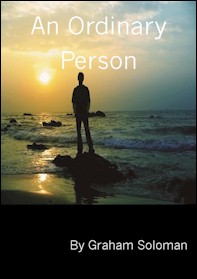 How I got a literary agent - An interview with author, Graham Soloman
How I got a literary agent - An interview with author, Graham Soloman How I got a literary agent - An interview with author, Robert W. Morgan
How I got a literary agent - An interview with author, Robert W. Morgan How I got a literary agent - An interview with author Rob Riley
How I got a literary agent - An interview with author Rob Riley How I got a literary agent - An interview with author Geri Spieler
How I got a literary agent - An interview with author Geri Spieler How I got a literary agent - An interview with author, Eric Houghton
How I got a literary agent - An interview with author, Eric Houghton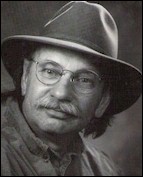 How I got a literary agent - An interview with author David C. Burton
How I got a literary agent - An interview with author David C. Burton How I got a literary agent - An interview with author Frank Hotchkiss
How I got a literary agent - An interview with author Frank Hotchkiss Verse & Vision: Interview with Mark Gottlieb, Leading Literary Agent
Verse & Vision: Interview with Mark Gottlieb, Leading Literary Agent How I got a literary agent - An interview with Mary Kilgore
How I got a literary agent - An interview with Mary Kilgore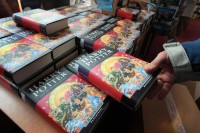 So you want to be a novelist? A New York literary agent, editor and author reveal how bestsellers are born
So you want to be a novelist? A New York literary agent, editor and author reveal how bestsellers are born The first three steps to finding a literary agent
The first three steps to finding a literary agent New Literary Agent Listing: Gabrielle Demblon
New Literary Agent Listing: Gabrielle Demblon Reading Force is delighted to welcome submissions from adults, children and young people to its 2025 Memoir Writing Competition
Reading Force is delighted to welcome submissions from adults, children and young people to its 2025 Memoir Writing Competition New Publisher Listing: Cicada
New Publisher Listing: Cicada Calling all aspiring authors! Here's your chance to win a one-to-one session with a literary agent - plus £1,500
Calling all aspiring authors! Here's your chance to win a one-to-one session with a literary agent - plus £1,500 New prize for translated poetry aims to tap into boom for international-language writing
New prize for translated poetry aims to tap into boom for international-language writing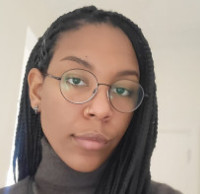 New Literary Agent Listing: Kaylyn Aldridge
New Literary Agent Listing: Kaylyn Aldridge TikTok parent ByteDance is shutting down its short-lived book publisher
TikTok parent ByteDance is shutting down its short-lived book publisher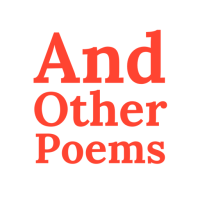 New Magazine Listing: And Other Poems
New Magazine Listing: And Other Poems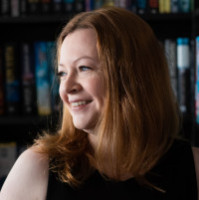 New Literary Agent Listing: Helen Lane
New Literary Agent Listing: Helen Lane UK audiobook revenue up by almost a third last year
UK audiobook revenue up by almost a third last year New Publisher Listing: Radio Society of Great Britain
New Publisher Listing: Radio Society of Great Britain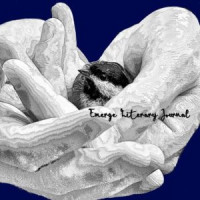 New Magazine Listing: Emerge Literary Journal
New Magazine Listing: Emerge Literary Journal New Literary Agency Listing: Ghosh Literary
New Literary Agency Listing: Ghosh Literary New Publisher Listing: Hardie Grant
New Publisher Listing: Hardie Grant
